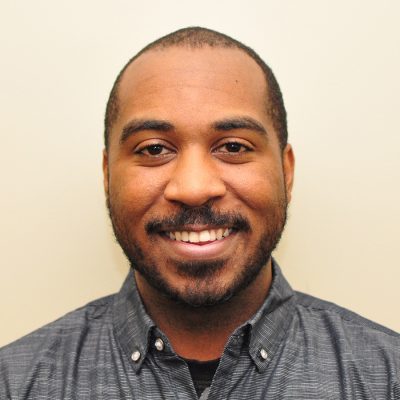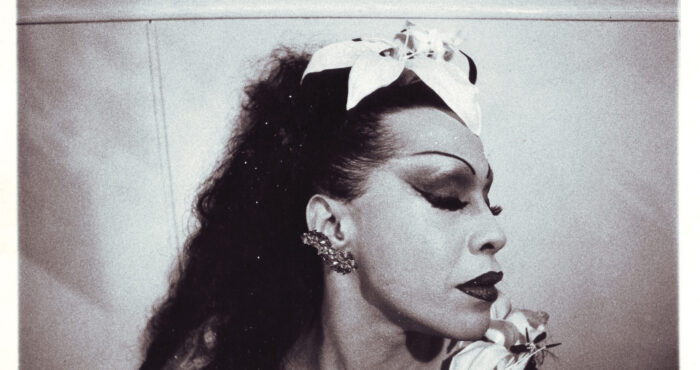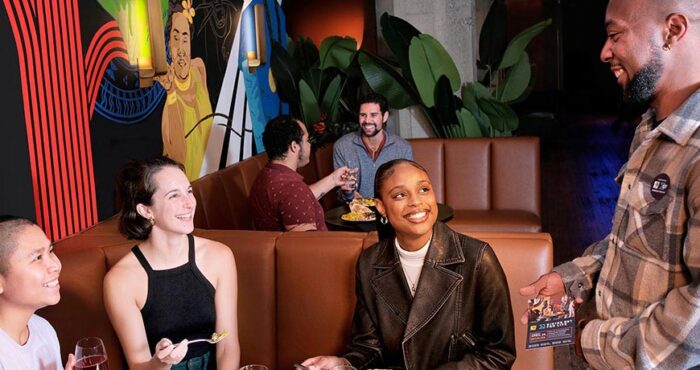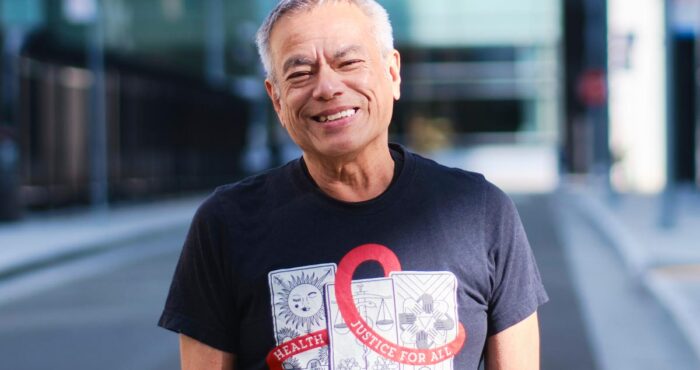Black Brothers Esteem Member Spotlight: William Dean
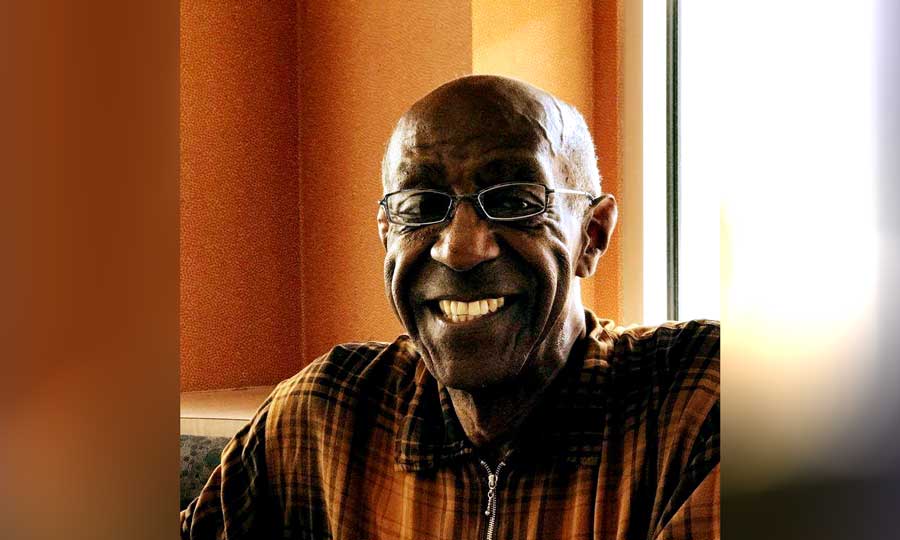
William Dean is a long-time member of Black Brothers Esteem (BBE). He has a long history of volunteerism, and is the former Peer Leader of the reading group “Brothers Who Read.” He volunteered his time to select books and guide the discussions, being a leading force for the BBE group that still continues to meet today. William took time to come to the BBE Outreach Meeting and share more about his life and community volunteerism.
Tell us a little about yourself. How did you first get involved with Black Brothers Esteem?
Even though I’ve been living in San Francisco for over 24 years, I really consider myself a Jersey boy. I grew up in Atlanta City, NJ. In many ways it reflects some of the same things as here: I lived 3 blocks away from the ocean and beach…. the winters were a different story altogether though.
I went to Virginia University in Richmond, VA from 1965- 1968. It was really a liberating experience for me because I grew up there as an independent adult. I was coming into ownership of my own homosexuality and met many great people from all over the country; including many black people who were flourishing in pursuing a better life for themselves. I later left college after my third year and went to Rutgers University for my undergrad in English Education. I then began teaching in Camden High School, across the bridge from Philadelphia. I taught there for 13 years, moved to Las Vegas, and then moved to San Francisco in 1985; teaching in San Carlos and East Palo Alto.
I retired in 2009, and didn’t come into contact with BBE until 2016. [My friend] Ted told me about it, but it was during the Martin Luther King event in Yerba Buena Gardens. I went to the [BBE] outreach table, and Shawn Demmons, (The BBE Program Coordinator) was heading the BBE Program at the time. He pulled me aside, talked me into attending one of the BBE groups (which I did the following week) and I have been going ever since.
Also the BBE Program Manager, Karl asked me to start a reading group for BBE shortly before his passing, and that’s how Brothers Who Read got started. Shawn encouraged me to keep it going and let me head it. He gave me free reign, and let me conduct sessions on my own. I was very grateful for him giving me the confidence to do it. It really became my contribution to volunteerism. It wasn’t paid… I did it on my own… I just wanted to give back until I couldn’t do it anymore.
Eventually I had a scheduling conflict with the San Francisco Public Library’s Project Read program that I was also volunteering for. I was tutoring adults how to read there. I had a passion for it, but since there was a conflict at the time, (the then BBE Program Coordinator,) Travis Wise took over facilitating the group for a year. And after I was able to change my schedule, I begged for my position back, Travis graciously gave it to me, and just like that, I went back to facilitating it. Then I got sick. The BBE Program Coordinator at the time, Preston, took it over as I came in and out- until Traye (the Health Educator for Black Health) started facilitating it. The whole thing, came out of a notion and passion for reading, as well as adults having the opportunity to improve their reading and engage with reading.
Wow I never knew—you started Brothers Who Read!
I have to give credit to Karl Knapper. He was the one that came to me with this idea that he had for a long time, and he’d heard of my volunteering at the library. The vision was to have a group of Black men who wanted to read and improve in their literature… A safe, and healing space with no judgment on reading level, and to give their opinion and interpretation [on the reading]. That was all him. I just came on, and we had a meeting of the minds for the approach that we wanted.
Tell us about the outreach, community work, and volunteerism that you have done with BBE and some of the outreach, community work, volunteerism, and activism that you’ve done in general.
Well, it all started 1988 when I began volunteering for the first time, with the San Francisco Public Library Main Branch. In 1988 [the SF Library Main Branch] was where the Asian Art Museum is now. At the new library, Project Reads started for adults struggling with reading, or who could not read at all. Volunteers interested in helping had a quick training program and were assigned 1, sometimes 2 adults. It was always 1-on-1 and we’d always meet in a private space in library.
I stayed with it for so long, and it was so rewarding for me. The main way, was getting so much out of helping [people] read who came to me, hearing their life stories, how they were able to get through life without letting people know that they couldn’t read. They all had elaborate ways to hide it—some were even in management positions. One person was even a baker with 2 boys and he had all these people he was in charge of. He told me how he was able to get recipes down without reading and it really impressed and amazed me how some people were able to live. That sort of thing really kept me going: seeing the joy and confidence they could gain, now that they could go through life with reading. He was a much older man, so I had asked him, “Why now?” He said he had these 2 boys and he wanted to share that with them. Everyone had similar reasons–was what helped. But I’ve been away from it for over 2 years and the pandemic closed everything.
When it came to BBE, Karl Knapper presented the opportunity [to be a part of a reading group]; that was my way of volunteering there. I didn’t really have time to do other activities in general. My way of volunteering was wanting to do the facilitation of the Brothers Who Read without any compensation, and I felt really good about that, and still do.
On the person that you mentioned, who couldn’t read—before he learned to read, did he say how he processed a recipe? When you said people had all kinds of ways to conceal their inability to read—I couldn’t imagine how someone could do that because of the exact science needed to cook… I mean how did he calculate his ingredients and manage a whole team?
I was amazed by how he did it, I think it was a tiring process that he had, but to him, it was second nature. For starters he had his own markings for different spices. He would also delegate tasks to people who worked under him to manage things that involved reading, and he had the excuse that he wore glasses and couldn’t read it. He had lot of different excuses, all to hide the fact that he was illiterate, but he got tired of doing it, and exhausted especially with wanting so badly to be able to read, and I also became really motivated by that.
You would be surprised, I had another person who was supervisor in an office job, and he’d also delegate tasks for reading and writing to other people in the office.
I’d find myself thinking back to growing up with my father and how I never knew that he couldn’t read. I found out when I was a senior in high school when my little brother came out and told me that [our father] could not read. It seemed odd because every morning my father would sit at the table with the newspaper. But one day I overheard a conversation between him and my mother, so I went to her, and she confirmed it. I was shocked, and deliberated on it for a long time. I wanted to go to him and tell him that he did not need to be ashamed, because he had his own rug business with 9 people working under him… My mother also did the book keeping so my father didn’t have to deal with that… So people find ways to survive without reading.
So going back to baker, and people that are living without being literate, it’s fascinating. There are about 51-52,000 people who cannot read that have a position—we call them functional illiterate—able to hold a job without reading.
What inspired you to get involved with outreach/community work?
So many things were happening with me in 2009 after I had stopped teaching. I was going thru an identity crisis, I was in and out of therapy, especially after friends were ill and passed out, and I had to face my own HIV crisis. I left the classroom, and I was left in a stupor, not having anything to do and no purpose for life. The volunteerism is what saved me, especially with the Project Read program and the Brothers Who Read group with BBE. That’s when the joy came back into my life.
If you really want to help people, you have to make sure you are joyous and feel good about reaching out to them, so they will feel that. If u don’t have that in your soul, they’ll feel that, and you can’t reach them.
So that’s what gave me joy, and I’m thankful for that. That’s why I make sure any outreach or volunteerism I do, I feel excited about it, and that it brings me joy just doing it. So I do the best that I can do to impact the people I come into contact with.
What are some insights that you have learned working with BBE and doing community-based work?
The main things for me were:
Giving back and paying things forward. I’ve been blessed having received so much support from BBE in terms of the friendships I’ve acquired, help in health issues, physical and psychological. It’s not just about my receiving, but also being in a position to give back in a way that I think matters, that’s what I’ve been able to take back from working with BBE and Phoenix Rising.
It’s been a wonderful experience to happen to me in terms of my growth. My growth would not have happened if I hadn’t been a part of BBE and Brothers Who Read.
One thing that comes with being a teacher is being a learner. I consider myself a lifelong learner. I learned so much from programs, and so much learned from people in programs, in our exchanges, in our discussions, and things I’ve taken to use in my life to be a better person. All of that is invaluable.
I have no intention returning to Brothers Who Read [as the facilitator], with things I have going on and the place where I’m at in life right now… I couldn’t guarantee I’d be able to continue it… And now it’s a different format, but I really appreciate all of the work people are doing with the group now.
What are some tips or words of advice that you would share with the Outreach Team or anyone reading in future?
I think the strategies that the outreach team or any team reaching out to any group of people should be to know of whom they’re outreaching to. Know all they can about those people, community, or person.
So do research and know what their needs are, and how what you’re doing can fulfill their needs, to help them flourish… That’s most important, knowing your audience, and make that your target, and you reach out to those people. Remember that you’re defining what your position is in your outreach, so be very specific of how you can help them, and put it in writing so that they could help themselves… So that they can go and have a meeting of minds, and then they can come back to you, and inform you of how you can be of service to them. Let them know how you are committed to them. You might even share some of your tracking of results, such as of things you’ve done with other groups or people, so they can have the understanding of how you might be able to help them in a similar way. Figure out a way that you can have lasting communication, so that these people can continue to be involved in your outreach program.
Anything else you would like us to know?
Before the pandemic surge, I was a tutor for senior citizen centers, tutoring seniors in computer labs for computer skills. Each senior center has a computer lab, and each of those labs must open it to the public, so if they need computer, and as long as they are a senior, they can use it.
I would help seniors learn and navigate, but that stopped with the pandemic and centers closed down. Now with things winding down the centers are reopening and I was invited to come back. I was reluctant but said I would that I would only on certain days, and by appointment only. I am very careful about my health and wanted to have control of who I come into contact with. I wanted control over my wellness and still wanting to do that work, and they said that they’d honor that. So I’m happy to say that I will be returning to the Castro Senior center.
We can open the floor to other BBE Members if anyone has anything they’d like to ask or say to William.
“I usually don’t come to this Outreach Meeting, but once I heard it was gonna be the wonderful William Dean, I had to come. You are so inspirational, and I’m so proud and glad that Shawn talked you into coming. You’ve brought a different taste, flavor, outcome and class, and I’m so thankful for that.”
“I’m so thankful for you sharing your story and being so vulnerable. It was an honor and a pleasure. Phenomenal. So glad that you our highlighted member.”
“I think you’re incredible. Given your life story, life and tribulations, you’re like a shining light. We all make contributions but you exemplify that, take charge and responsibility. I wonder how many people across the country are doing what you do. It makes you a gem. It’s powerful that you know when to step back when you need to.”
“I’m also a fan—you are inspirational—you were a part of me being a part of this group, especially because of how you lead a group.”
This is great feedback from everyone […] William, is there anything you’d like to say?
I always say, there would be no Brothers Who Read if there were no people to participate in it. These people have been loyal and been in it to this day. Even though I have all this praise, it would be no group without all the people who come and take part in discussion. I was just there seeing that we got from one step to another. Those people need to be acknowledged.
I’m on dialysis every Monday, Wednesday and Friday, for over a year, but I’m doing well. I embrace my treatment with the notion that it affords me with a quality of life that I’m able to appreciate, and the exuberance to do things I care about. During a time that all of these things are happening, I can continue doing what I can as long as I can, and share my expertise with anyone who can benefit.
I’m just happy to be back to in-person [at the foundation] again for hybrid groups.
The last thing I’ll say is that each one of you is special, don’t ever forget that.






